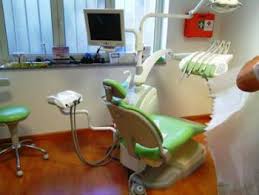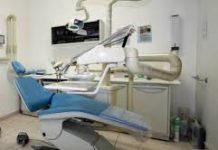Tooth decay.
Tooth decay is a natural process that involves the enamel of the teeth and that is caused by bacteria living in the mouth reacting with sugar and starches. Decaying teeth might become teeth with cavities, and it can happen because the decay is not treated, but also because tooth decay is a silent process, not easy to recognise.
Tooth decay is the consequence of the erosion of the enamel, the hard tissue that covers teeth; this hard tissue can be broken down by the action of bacteria. Bacteria live in the mouth and on the surface of the teeth, where they form the dental plaque, a sticky and colourless film. When we eat sugary or starchy foods and drinks, bacteria feed themselves on sugars and produce acids, that corrode the enamel.
In this way, the enamel of the teeth looses its minerals and become weaker, but it can regain minerals, and repair itself, from saliva or other sources like toothpaste or water; during the day this natural process of losing and regaining minerals is continuos.
Usually, decaying of the teeth causes dental caries, or cavities, that happens when the enamel is definitely punched; after that, the erosion might spread inside the tooth and reach the inner tissues. It is important to remember that a cavity not treated can entail the loss of the tooth.
What causes tooth decay.
Tooth decay happens at any age; children are more likely than adults to have tooth decay because the minerals in new teeth are not very strong and even babies can be at risk for tooth decay, especially those who are put to bed with a bottle; they can also get bacteria from adults who share spoons or forks with them.
Usually, a tooth starts aching when there is a cavity, but tooth decay may have symptoms like a toothache, bad breathe, white, grey or black spots on the teeth, swelling gums. In any cases, some simple advice can help to manage tooth decay and prevent it from causing cavities.
Decaying teeth. Brushing teeth.
Brushing teeth at least twice a day, especially before bedtime, and flossing once; visit a dentist regularly, at least twice a year. People with diabetes or other diseases or that are particularly prone to cavities must pay more attention to their oral hygiene and consult their dentist or a dental hygienist. It is important to eat a balanced diet, poor of sugar, and avoid snacks among the meals and before bedtime; use fluoride and quit smoking.





